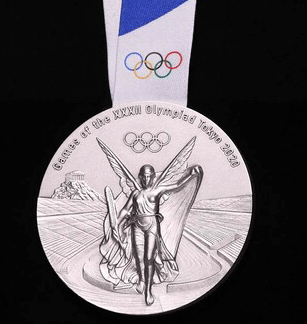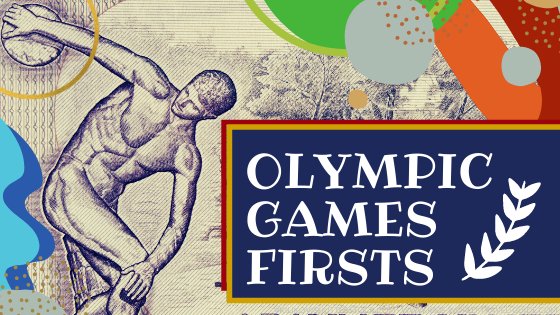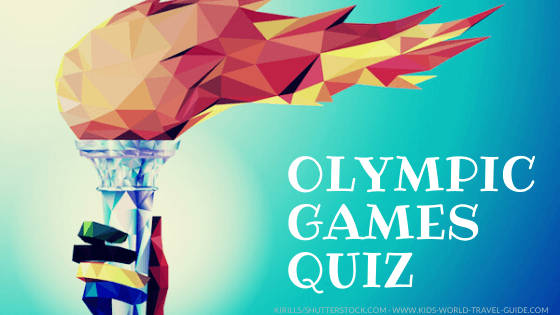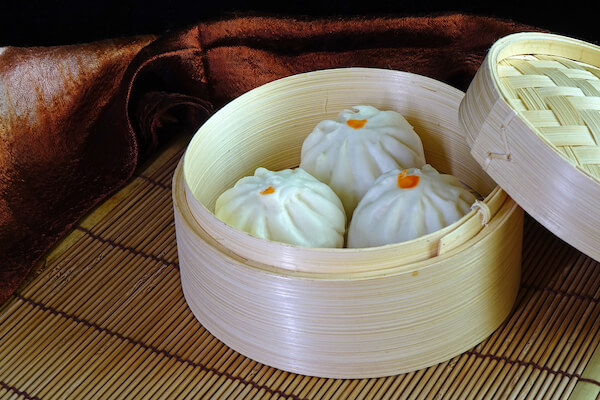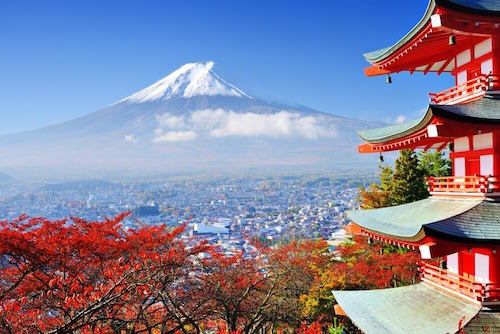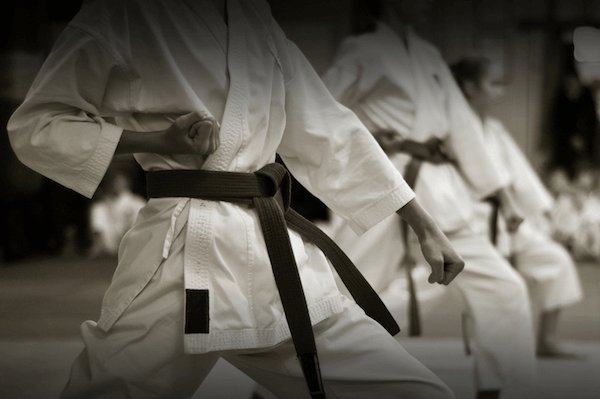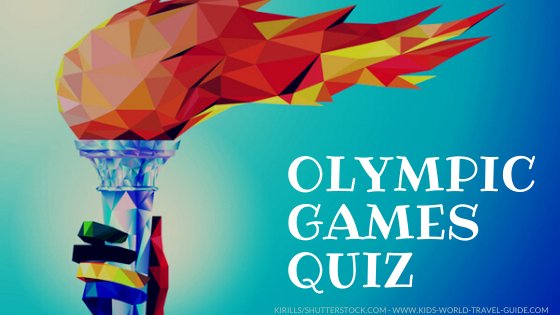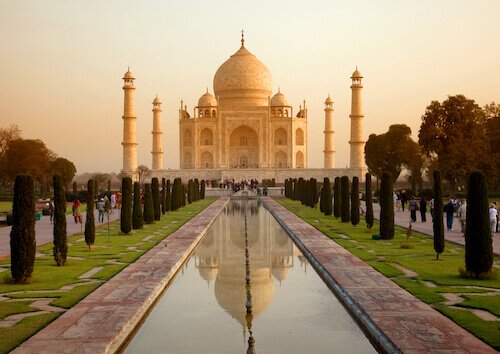- Homepage
- Facts about the Olympics
Facts about the Olympics
Here we will share interesting and fun facts about the Olympics.

The Winter Olympics 2022 in Beijing will be held from 4 February to 20 February 2022. For info about the Olympics 2022, please see our special page.
Modern Olympic Games
The first modern Olympic Games were held in Athens in the summer of 1896. In 1894 Pierre de Coubertin had presented his ideas for an international sports competition to promote international understanding. He founded the International Olympic Committee in 1894. The first multi-sports event was then called Games of the Olympiade and was the biggest international event at that time!
Olympic Games first were only held in summer and since 1924 Olympic Games are also held in winter. Summer and Winter Olympic Games are held every four years. The Summer Olympics and the Winter Olympics alternate every two years which means the Summer Olympic Games are spaced four years apart and always come in between the Winter Olympic Games. In 2020 the Summer Olympics were held, while in 2022 the Winter Olympics take place in Beijing. And in 2024 the Summer Olympics will be held again, this time in Paris/ France.
The Olympics are held in different cities every time. 19 Countries have hosted the Olympics since 1896. Some cities or countries have hosted the Olympics multiple times. However, Beijing is the first city to host a Summer Olympics as well as Winter Olympics in the same city!
The most Summer and Winter Olympics were hosted in the USA while London/UK is the only city that hosted three Summer Olympics.
The first Summer Olympic Games in 1896 were held with fourteen participating countries. Then 200 of the 241 sportsmen were from Greece and there were 43 sports events held in 9 sports.
The first countries to take part in these games were Greece, the USA, Germany, France, Great Britain, Hungary, Austria, Australia, Denmark and Switzerland.
Competitions in 1896 were held in sports disciplines: athletics, cycling, fencing, gymnastics, shooting, swimming, tennis, weightlifting and wrestling.
No women were allowed to compete at the first Olympic Games, although one woman from Greece, 30-year-old Stamata Revithi, joined in the marathon event on her own.
Facts about the Olympics
The first Olympics
The first and so-called ancient Olympic Games were held in Greece more than 2,800 years ago.
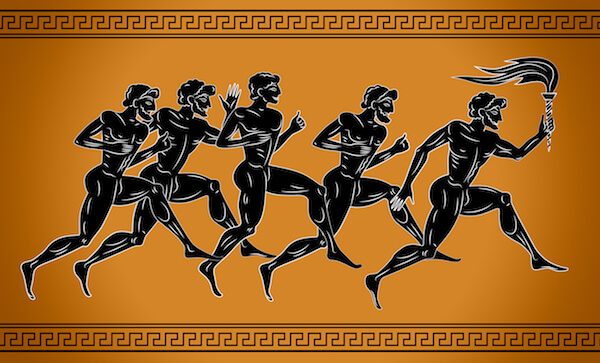
The games, originally named 'Olympiad', take their name from the region of Olympia in Greece. The Olympiads then included athletic events as well as an arts festival and were meant to be celebrations to worship the Greek gods. The Greek goddess which is depicted on the Olympic medals is thus Nike, the goddess of victory. There were regular intervals between the events and the ancient games were all held in Greece.
The ancient Olympic Games, the 'Olympiads' were last held in 393 AD.
Read more about Olympic Games Firsts on our special page here.
Facts about the Olympics
Olympic Symbols
There are various Olympic symbols, some of these are permanent such as the Olympic flag or the Olympic flame.
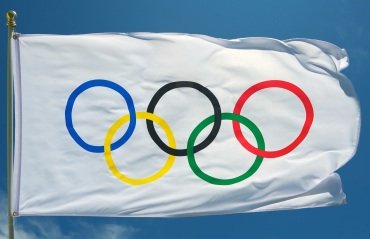
- The Olympic Flag spots five intertwined rings on white background. The five rings that are linked with each other symbolise the unity and solidarity of the five continents - Africa, America (North and South America) Asia, Oceania and Europe. The Olympic Flag is white with these five rings in blue, yellow, black, green and red. The flag was first flown at the 1920 Olympics in Antwerp/Belgium.

- The Olympic Flame is always lit at the Temple of Hera in Olympia and follows an ancient ritual where the Olympic Flame is lit and also captured in a torch that is used for a torch relay. The newly lit torch is used in the Olympic torch relay then follows a path through participating countries and is a standard routine in the time leading to the opening of the sports events. The route depends on the theme and interests of the host country.
 Bing Dwen Dwen
Bing Dwen Dwen- The Olympic mascots are designed by the host country and represent a virtue or cultural trait of the host country and the event. The mascots for the Olympics 2022 is called Bing Dwen Dwen. The name originates from the Chinese (Mandarin) language and means: Bing symbolises purity and strength and is the Mandarin word for "ice", while Dwen Dwen is the Mandarin word for "children".
Facts about the Olympics
Olympic Motto
The Motto is Citius - Altius - Fortius (in Latin) which means 'Faster - Higher - Stronger'. The motto was officially adopted in 1924 as the Motto of the Olympics.
The Olympic guiding principle is to take part in the Games but it is not only to win. "The essential thing is not to have conquered but to have fought well."
The ultimate goals are the creation of friendships and "solidarity through fair play as well as the wish for a better world and peaceful harmony between the countries."
Each Olympic games have a specific motto too. The unique motto of the 2022 Olympic Winter Games in China is 'Together for a Shared Future'.
Facts about the Olympics
Olympic Medal Facts
Here are 10 fascinating Olympic Medal Facts for you:
- The first, second and third placed athlete of an event will win a gold, silver or bronze medal respectively. The tradition of awarding gold, silver and bronze medals was introduced in 1904.
- In the ancient Olympics winners were not given medals but were awarded with an olive wreath and also in the first two modern Olympic Games in 1896 and 1900 winners only received silver medals and an olive branch.
- While the sportsmen of Greece won the most medals in the first Olympics in 1896, The USA won the most gold medals (11) at that time.
- The USA lead the all-time medal table with 1022 gold medals, 795 silver medals and 705 bronze medals. The USA lead the All-time medal table already 17 times.
- The UK had the most successful games in 1908 in London with 146 medals, this talley they have not topped yet.
- The most decorated Olympian is swimmer Michael Phelps from the USA who won in total 28 medals including 23 gold medals. He participated in the swimming events from 2004 - 2016.
- Michael Phelps, swimmer from the USA, was the first to win eight gold medals in the 2008 Beijing Games.
- Olympic gold medals were only made of solid gold until the 1912 Olympics. Today, gold medals are made out of silver and are gold-plated with about 6g of gold while silver medals are made out of pure silver and bronze medals are mainly made out of copper.
- Medals weigh roughly 500 grams or 1 pound.
- The value of a medal depends on the current market value of the used metal. As a gold medal only is about 1% gold and the silver prize is significantly lower than gold, the value of a medal is only about 400 - 600 US dollar/ 300 - 460 British pounds . Many countries also award prize money to Olympic medal winners.
Facts about the Olympics
Cancellations and Boycotts
The 2022 Olympics are overshadowed by diplomatic boycotts for political reasons and human rights issues. Some countries, among them the USA, Australia and Canada only sent athletes but refrained from sending officials and ministers.
Boycotts by different countries happened throughout history.
- The 1980 Olympic games in Moscow/ UdSSR (today Russia) were boycotted by 66 countries including the USA, Canada, West Germany and Japan due to the invasion of Afghanistan by the Soviet Union in 1979.
- The following 1984 Summer Olympics in Los Angeles/ USA were then boycotted by the Soviet Union and its allies in "Eastern Block" countries of Europe.
There were three cancellations of the Summer Olympic Games due to the world wars.
- The 1916 Summer Olympics were cancelled for World War I
- 1940 and 1944 Olympic Games were cancelled during World War II.
- The 2020 Olympics were postponed one year due to the Covid-19 pandemic and took place in July and August 2021.
Facts about the Olympics
Related Pages
Facts about the Olympics | Resources
For our page Facts about the Olympics, the following resources were used.
- The International Olympic Committee. "Olympic Medals." Olympic.org. Last accessed 9 February 2022
- The International Olympic Committee. "Meet Bing Dwen Dwen." Olympic.org Last accessed 9 February 2022
- The International Olympic Committee. "Beijing 2022." Olympic.org. Last accessed 9 February 2022
- The International Olympic Committee. "Olympic House." Olympic.org. Last accessed 9 February 2022
Images on the Facts about the Olympics page: Tokyo Olympics Header Image: Chaay_Tee/ shutterstock.com; torch: KirillS/ shutterstock.com; Mascots: Octavio Acosta Carlock/ shutterstock.com; Logo: Krovop58/ shutterstock.com; Medal: olympic.org
Competition 2023 closed

Watch this space
Competition 2024 will be announced in February
Temperature in Celsius
BEIJING WEATHERTemperature in Fahrenheit
BEIJING WEATHER
More about Countries and Territories in Asia
 Indonesia
Indonesia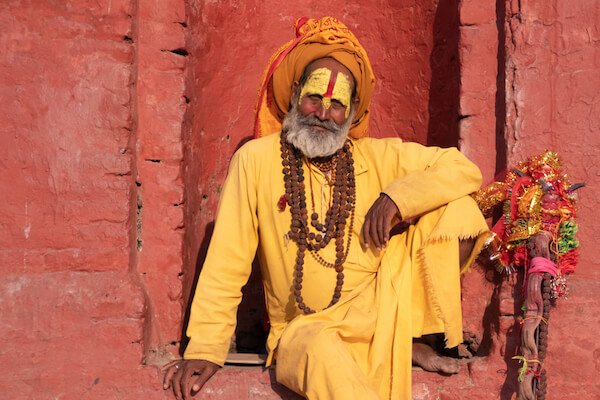 Nepal
Nepal Sri Lanka
Sri Lanka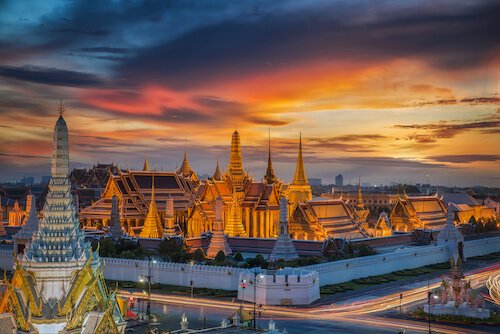 Thailand
Thailand